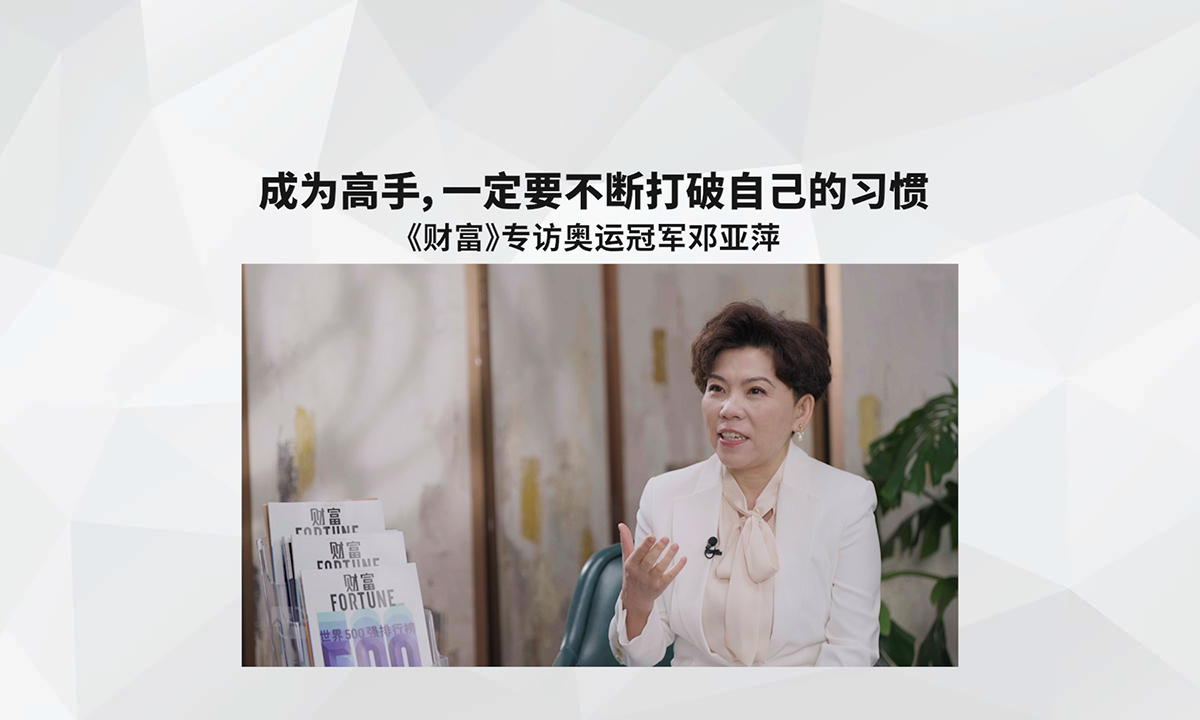In 1975 I made my first trip to China, to attend the Canton Trade Fair for the first of many times. Then I realized that staying on might just offer an education which no graduate program at the time could compare with.
In those days China's total foreign trade volume was a pittance -- her total imports and exports in 1973 -- the year I graduated from Princeton -- were less than US$11 billion. By contrast, last year, in 2010, China imported more than US$11 billion worth of luxury goods alone, to say nothing of her booming exports or other imports. That represents a staggering pace of growth and change in less than 40 years.
Until 1975, all foreign trade and economic decisions were concentrated among a few high-level bureaucrats in Beijing, and implemented through 12 monopoly state-owned import-export corporations. Foreign trade was largely an extension of foreign policy.
Trade with the world was officially viewed as a kind of necessary evil, whose transactions were largely dictated in accordance with the five-year plan, to be conducted in the tightly controlled atmosphere of the Canton Trade Fair, for a one month period in the fall and one month in the spring. Needless to say, foreign investment was completely taboo. Words like "advertising", "marketing", and "competition" were regarded with as much disdain as pornography would have been in Victorian England.
Canton Trade Fair
So, with a sense of great excitement, in 1975, I embarked on the nearly full-day, 60-mile train journey from Hong Kong to Guangzhou, starting from the old Kowloon station, located next to the Star Ferry, where the clock tower still stands today.
After seven years of Chinese study I was excited to finally be going someplace where Putonghua was spoken.
Between these two great cities, Hong Kong and Guangzhou, there was only one daily train service, and no other transport links: no planes, one train, no automobiles or ferries. The fastest route from Hong Kong to Beijing at the time required 2 days, including an overnight in Guangzhou and connecting flight the next day.
After clearing exit formalities on the Hong Kong side of the Shenzhen River at Luo Hu, passengers walked across the bridge with their luggage, and began entry formalities on the China side.
There was a palpably slower pace on the china side. It felt like walking onto the set of a slow-motion movie, especially after the hustle-bustle tempo of Hong Kong.
The advertising billboards on the Hong Kong side were replaced by political billboards on the mainland side, with messages like "We have friends all over the world", "In agriculture, learn from Dazhai", "Dig tunnels deep, store grain everywhere," "Long live Chairman Mao", and so on.
There were many forms to be filled out, and the pace of inbound customs and immigration formalities was slow, but the reward was a sumptuous 12-course Chinese banquet served to all foreign guests within the train station complex. After lunch there was time to relax in a room filled with plush antimacassar-backed armchairs with spittoons at their base, beneath a huge Chinese landscape painting: "The welcoming guests' pine tree."
The spittoons, long since disappeared, were a notable feature of the standard interior design motif of VIP meeting rooms in those days. For those of us not used to frequent public expectoration, it was tempting to take a few practice shots. But I resisted that urge...
Then came the 3-hour train journey to Guangzhou, which delivered you there in the late afternoon, to be met at the station by a representative of your host organization, who would identify himself or herself by surname only. The proper term of address was "Comrade " following the surname.
Name cards were not in use yet among the Chinese side, ostensibly because they might have divulged an excessive amount of potentially sensitive information, such as names, addresses, and phone numbers.
Along similar lines, the weather report was classified information because it was deemed to be very sensitive information, of potential significance to hostile foreign military forces. The Dong Fang Hotel -- where all foreigners were mandated to stay -- would not divulge the room numbers of its guests. There were no telephones in the rooms in any case, so the denial of room numbers was something of a moot point.
The telephone simply did not play a role in doing business in China in that era. Instead, telex, telegrams and letters -- all impersonally addressed -- and twice annual face to face meetings at the trade fair were the available communications platforms for the conduct of commerce.
The Dong Fang Hotel during the trade fair was a motley collection of people from every corner of the globe. Gaggles of folks wearing colorful native costumes shuttled between meals in the hotel restaurant and the sprawling trade fair complex across the street. The incredible diversity of the delegates was a bit reminiscent of the intergalactic bar scene in "Star Wars", except that there were no bars in China at the time.
Delegates were required to wear pink ribbons on their lapels, indicating they were authorized to enter the trade fair complex. The pink lapel ribbons added an element of festive atmosphere.
After arriving in the Dong Fang that first afternoon, and filling out another small forest worth of forms, it was almost time for dinner. Meals were served at fixed times, with set menus. Qingdao beer was available; Coca Cola and coffee were not. Foreign guests were fed like kings and queens compared to ordinary Chinese people at the time.
Then it was time for an early evening. There was no place to go after dinner other than sit and talk with colleagues, or play ping pong. In later years, an upstairs dining room in the Dong Fang was converted into a quasi-bar serving local beverages, which visitors affectionately nicknamed "The Purple Cockatoo."
So that first evening I turned in early, excited about what the next day might bring. Finally, after all these years of study, my first full day in China lay just ahead of me.
Shock and awe
Imagine, then, my shock and awe the next morning, when I was rudely awakened at 6 a.m., by piercingly loud, searingly shrill, broadcasts from loudspeakers in the streets outside the window of my hotel room. What a way to start the day, with the latest thoughts of Chairman Mao, recited by a high-pitched female announcer whose staccato delivery was reminiscent of a dentist's drill. That particular morning, on behalf of the Chairman, she happened to be denouncing Confucius, Lin Biao, and -- much closer to home -- American imperialists and their running dogs.
I looked out the window to see a river of blue and gray Mao-jacketed bicyclists for whom this breakfast broadcast was a regular daily routine.
"Dadao meidiguo zhuyi jiqi zou gou!!!"
There was some small solace in the fact that I could understand most of the message, which proved my Chinese language studies had not been in vain. On the other hand, it was not exactly a welcoming message, especially given the method, volume and tone of its delivery.
Still only half awake as the harsh denunciation sunk home, I thought to myself “I'm pretty sure I'm not an imperialist... but I'm not so sure about the running dog part."
The cold irony hit hard. A few years ago, back home, I'd been teased about studying the language of Red China, almost at risk of being labelled a pinko or commie sympathizer. Now that I'd finally arrived in China, I was loudly labelled an imperialist running dog.
A felt a sudden pang of homesickness for the classics: Latin, Greek, and Sanskrit -- so ancient, so passive, and so conveniently unable to talk back at you, either in person or over the radio.
But those fleeting second thoughts quickly dissipated, due not so much to a brave spirit as to a hungry stomach. It was time for breakfast.
The rest of that first visit was a series of memorable conversations and experiences which left me convinced that I was very fortunate to experience china at that tumultuous time in its history.
Starting my business
Later that year, after my boss and mentor passed away, I debated the pros and cons of returning to the U.S. for graduate studies, but decided to stay on in Hong Kong. Blissfully ignorant of the risks involved, I started a publishing company with several partners. Our view was that the turmoil of the Cultural Revolution would probably not last forever, and would more than likely be followed by a period of economic rebuilding and expanded trade with the world.
This, we reckoned, should create opportunities for business publishers. The big question was the timing.
Our magazines' contents were focused on introducing western industry and technology. They were published in Hong Kong and distributed in China, in simplified Chinese characters, with advertising from international companies wanting to sell industrial products to China: machine tools, construction equipment, pumps and valves, etc.
Some of the leading experts at the time thought that China wasn't yet ready for this, and that our new publishing venture was unlikely to succeed. Moral: best not to judge what will work in China tomorrow purely by the limits of what worked yesterday.











